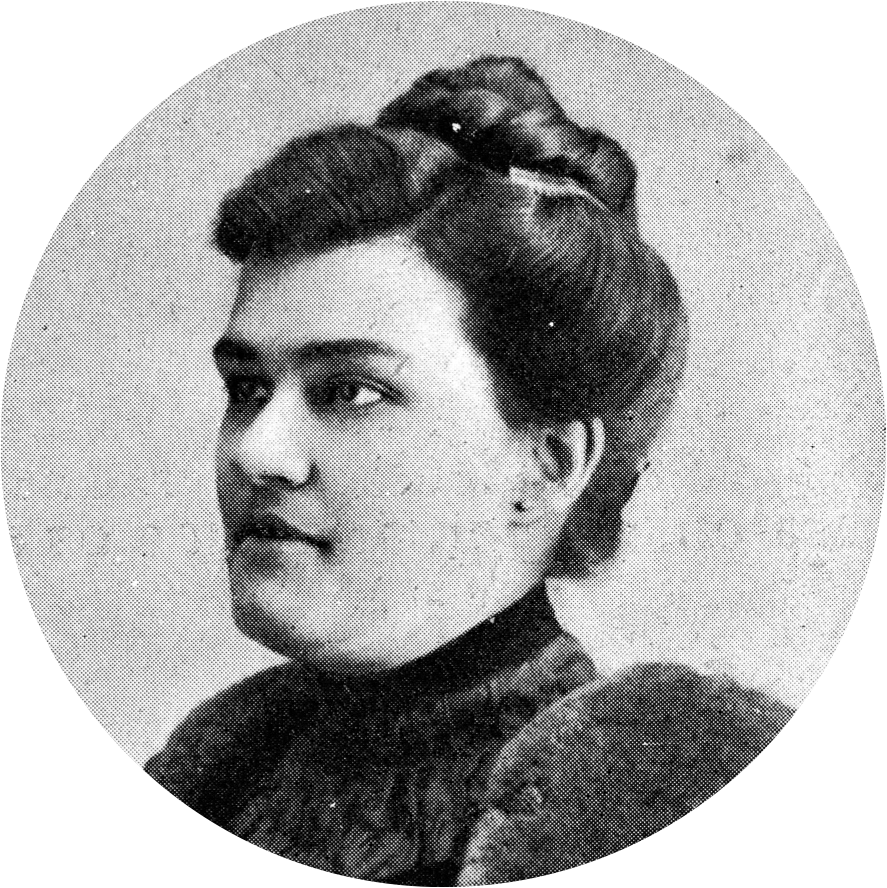
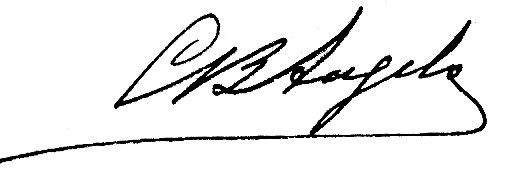
Carolina Beatriz Ângelo was born in Guarda, in 1878. She graduated in Medicine, in 1902, with a dissertation entitled “Genital Prolapses”. Ten years later, she obtained a specialization degree in Gynecology, eventually becoming the first female surgeon in Portugal, as well as the first woman to perform surgeries at the St. Joseph Hospital, in Lisbon.
In 1906, she embraced pacifism by adhering to the Portuguese Committee of the French association La Paix et le Désarmement par les Femmes. In 1907, she integrated the Humanity Store, of which she was Venerable. Additionally, she also took part in the formation of the Portuguese Group of Feminist Studies (1907 – 1908), partnered with the Republican League of Portuguese Women (1908 – 1911) and, in 1911, highlighting her suffragism, she created, with Ana de Castro Osório, the Association of Feminist Propaganda.
A devoted feminist and suffragist, Ângelo was involved in one of the most pivotal moments in the history of the women´s vote in Portugal – she was the first woman able to vote in the country, on the 28th of May of 1911.
The year before, she had conspired for the Republic, having stitched, with her friend and colleague Adelaide Cabete, the hoisted flags during the revolution that took place on the 5th of October. With the subsequent implantation of the Republic in Portugal, she became an undaunted fighter for women´s suffrage, albeit directed at a minority.
Carolina Beatriz Ângelo died prematurely, at the age of 33, having fallen victim to a flu epidemic that ravaged Lisbon in the summer of 1911.
On the 5th of October of 2009, the CTT (Postal Services of Portugal) issued a collection of stamps intended to pay tribute to a group of “women whose actions and testimonies transformed them into figures indelibly associated with the history of the Republic”. Such collection, aptly titled Women of the Republic, “evokes activists of female rights from the early days of the Republic”, and in it one can find Carolina Beatriz Ângelo, along with Maria Veleda, Ana de Castro Osório, Carolina Michaëlis de Vasconcelos, Angelina Vidal, Adelaide Cabete, Virgínia Quaresma and Emília de Sousa Costa.
Carolina Beatriz Ângelo nasceu na Guarda em 1878. Formou-se em Medicina em 1902 com o tema de dissertação "Prolapsos Genitais" e especializou-se em Ginecologia dez anos depois. Acabou assim por tornar-se a primeira cirurgiã em Portugal e a primeira a operar no Hospital de S. José, em Lisboa.
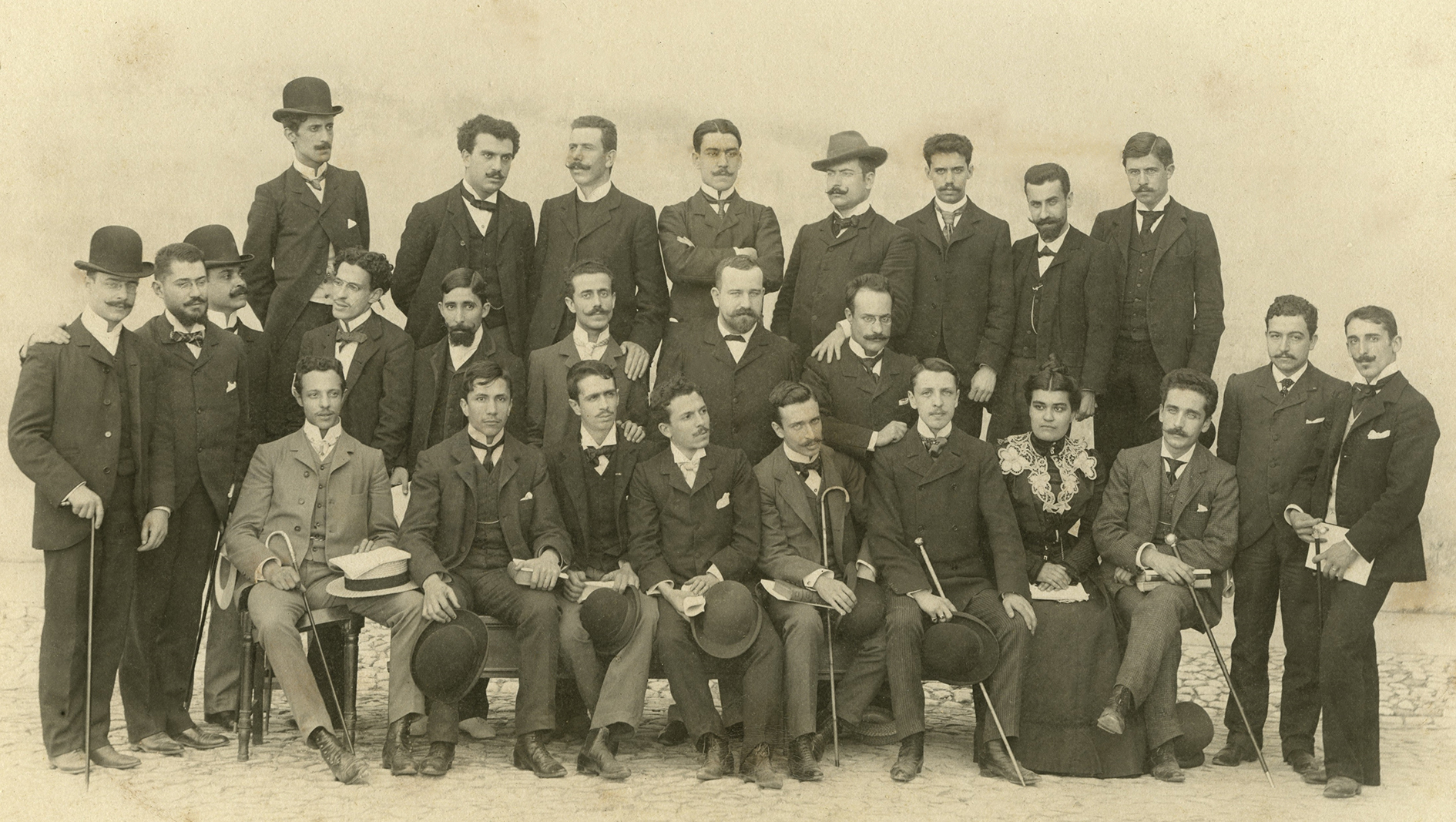
Foto gentilmente cedida pelo Doutor Manuel Mendes Silva.
Abraçou o Pacifismo ao aderir, em 1906, ao Comité Português da associação francesa La Paix et le Désarmement par les Femmes; integrou, em 1907, a Loja Humanidade, da qual foi Venerável; esteve na formação do Grupo Português de Estudos Feministas (1907-1908); emparceirou na Liga Republicana das Mulheres Portuguesas (1908-1911) e, em 1911, dando ênfase ao seu sufragismo, construiu com Ana de Castro Osório, a Associação de Propaganda Feminista.
Feminista e sufragista protagoniza um dos momentos mais emblemáticos para a história do voto feminino em Portugal. Foi Carolina Beatriz Ângelo a primeira mulher a votar no nosso país no dia 28 de Maio de 1911. Conspirou, em 1910, pela República, bordando, com a colega, amiga e companheira Adelaide Cabete, as bandeiras hasteadas durante o 5 de Outubro e, com a República, transformou-se numa denodada batalhadora pelo sufrágio feminino, mesmo que abrangendo uma minoria. Morreu prematuramente aos 33 anos vitima de uma epidemia de gripe que assolou Lisboa no Verão de 1910.
A 5 de Outubro de 2009 os CTT fizeram uma emissão filatélica com o objectivo de homenagear um grupo de “mulheres cuja acção e testemunho as tornaram figuras indelevelmente associadas à história da República”. Esta coleção, denominada Mulheres da República, “evoca activistas dos direitos femininos dos primeiros tempos da República”, e dela faz parte Carolina Beatriz Angelo, juntamente com Carolina Michaëlis de Vasconcelos, Maria Veleda, Ana de Castro Osório, Maria Veleda, Adelaide Cabete, Angelina Vidal, Virgínia Quaresma e Emília de Sousa Costa.
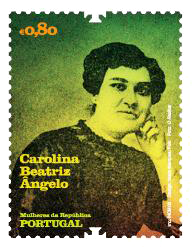
Pelo Edital de 20 de Abril de 1988, o seu nome foi dado a uma Rua do Bairro de Caselas, 77 anos após a sua morte, por uma solicitação da Junta de Freguesia de São Francisco Xavier.
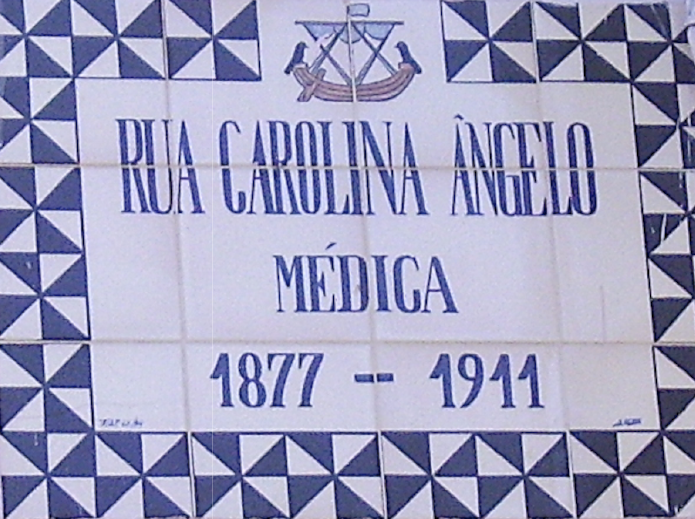
References:
- Carolina Beatriz Ângelo, wikipédia.
- Dicionário de Médicos Portugueses, Carolina Beatriz Ângelo.
- Toponímia de Lisboa, Rua Carolina Ângelo.
- Catálogo: Carolina Beatriz Ângelo, intersecções dos sentidos, palavras, actos e imagens, coord. Dulce Helena Pires Borges; comissão científica João Gomes Esteves; textos António Lopes et al.